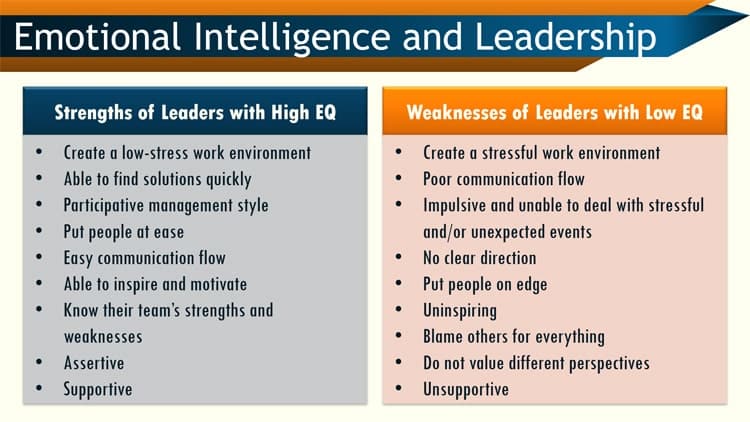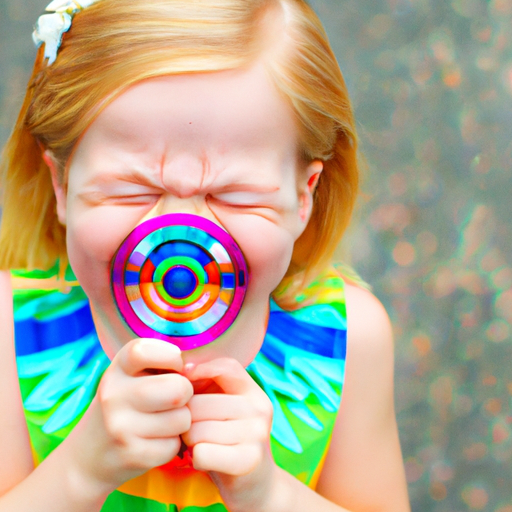Are you ready to unlock your full potential and live a life filled with happiness and harmony? If so, then it’s time to explore the power of mindfulness and emotional intelligence. In this article, we’ll delve into the depths of these concepts, providing you with the tools and knowledge to strengthen your inner awareness. By mastering mindfulness and emotional intelligence, you can pave the way for personal growth, improved relationships, and a deeper connection with yourself and others. So, let’s embark on this journey together and discover how these practices can transform your life.
The Connection Between Mindfulness and Emotional Intelligence
In order to explore the relationship between mindfulness and emotional intelligence, it is important to first understand the definitions of each. Mindfulness can be defined as the practice of intentionally focusing on the present moment, without judgment. It involves being fully aware of your thoughts, feelings, bodily sensations, and the surrounding environment. On the other hand, emotional intelligence refers to the ability to recognize and understand emotions, both in oneself and in others, and to use this awareness to effectively manage and navigate interpersonal relationships.
While these two concepts may seem distinct, there is a clear overlap between mindfulness and emotional intelligence. Both involve developing self-awareness, regulating emotions, cultivating empathy and compassion, and improving interpersonal skills. By combining the principles and practices of mindfulness with emotional intelligence, individuals can enhance their overall well-being and strengthen their inner awareness.
How Mindfulness Enhances Emotional Intelligence
Developing self-awareness through mindfulness
Mindfulness is a powerful tool for developing self-awareness, as it allows you to observe your thoughts, emotions, and bodily sensations without judgment or resistance. By regularly practicing mindfulness, you create the space to become more attuned to your own internal experiences, gaining a deeper understanding of your emotions, triggers, and patterns of behavior. This increased self-awareness is a fundamental component of emotional intelligence, as it enables you to better recognize, understand, and manage your own emotions.
Cultivating self-regulation with mindfulness practices
One of the key components of emotional intelligence is the ability to regulate and manage your emotions effectively. Mindfulness practices, such as meditation, can help cultivate this essential skill. Through mindfulness, you learn to observe and acknowledge your emotions without immediately reacting to them. This non-reactive stance allows you to create a space between stimulus and response, giving you the ability to consciously choose how you want to respond to a situation. By regularly practicing self-regulation through mindfulness, you can develop greater emotional intelligence and make more intentional choices in your interactions with others.
Promoting empathy and compassion through mindfulness
Empathy and compassion are integral to emotional intelligence, as they involve the ability to understand and respond to the emotions of others. Mindfulness practices can help cultivate these qualities by fostering a sense of connectedness and compassion towards oneself and others. When practicing mindfulness, you learn to observe and accept your own emotions with kindness and non-judgment. This practice of self-compassion then extends to others, allowing you to cultivate empathy and compassion in your relationships. By enhancing your ability to understand and respond to the emotions of others, mindfulness can greatly strengthen your emotional intelligence.
Improving relationship skills through mindfulness
Mindfulness also plays a significant role in improving interpersonal skills, which are a crucial aspect of emotional intelligence. By learning to be fully present and attentive in your interactions with others, you can enhance your ability to listen actively, communicate effectively, and build deep, meaningful connections. Mindfulness helps you become more aware of the subtle cues and emotions of others, enabling you to respond more appropriately and empathetically. By incorporating mindfulness into your daily life, you can continuously develop and refine your relationship skills, ultimately leading to stronger interpersonal relationships.
Practical Strategies for Cultivating Mindfulness and Emotional Intelligence
Now that we understand how mindfulness can enhance emotional intelligence, it’s important to explore practical strategies for cultivating both qualities in our everyday lives. Here are some strategies that can help you strengthen your mindfulness and emotional intelligence:
Incorporating meditation into your daily routine
Meditation is one of the most effective and accessible ways to cultivate mindfulness and emotional intelligence. Find a quiet and comfortable space, set aside a specific time each day, and start with just a few minutes of meditation. Focus on your breath or a specific sensation in your body, and whenever your mind wanders, gently bring your attention back to the present moment. As you develop a consistent meditation practice, you’ll notice improvements in your self-awareness, emotional regulation, and overall well-being.
Practicing mindful breathing exercises
Mindful breathing exercises are a simple yet powerful way to anchor yourself in the present moment and cultivate mindfulness. You can engage in mindful breathing exercises by simply focusing your attention on your breath, observing the sensation of each inhalation and exhalation. Whenever your mind starts to wander, gently guide your attention back to your breath. This practice not only brings you into the present moment, but it also relaxes your body and calms your mind, promoting emotional stability and clarity.
Engaging in body scan meditations
Body scan meditations are another effective practice for cultivating mindfulness and emotional intelligence. In this practice, you systematically bring your attention to different parts of your body, observing any sensations or tensions without judgment. By scanning your body from head to toe, you develop a greater sense of bodily awareness and can release any areas of tension or discomfort. This practice not only cultivates mindfulness, but it also helps you become more attuned to the physical sensations associated with your emotions, enhancing your emotional intelligence.
Developing a gratitude practice
Gratitude is a powerful emotion that can positively impact both mindfulness and emotional intelligence. Developing a gratitude practice involves regularly reflecting on and expressing gratitude for the people, experiences, and moments in your life. This practice shifts your focus from what is lacking or negative to what you appreciate and value, fostering a sense of contentment and well-being. By actively cultivating gratitude, you develop a more positive and optimistic mindset, enhancing both your mindfulness and emotional intelligence.
Engaging in mindful eating
Mindful eating is a practice that involves fully engaging your senses and being present with the experience of eating. Instead of rushing through meals or mindlessly consuming food, take the time to savor each bite, noticing the flavors, textures, and smells. This practice not only helps you develop a healthier relationship with food, but it also cultivates mindfulness and self-awareness. By practicing mindful eating, you become more attuned to your body’s hunger and fullness cues, making more conscious choices around food and nourishing yourself in a balanced way.
Using mindfulness in daily activities and interactions
In addition to formal mindfulness practices, it is important to bring mindfulness into your daily activities and interactions. Whether you’re brushing your teeth, walking in nature, or engaging in a conversation, make a conscious effort to be fully present and engaged. Notice the sensations in your body, the thoughts and emotions arising in your mind, and the details of your surroundings. By infusing mindfulness into your daily life, you can cultivate a greater sense of presence, clarity, and responsiveness, strengthening both your mindfulness and emotional intelligence.
Cultivating self-compassion
Self-compassion is an essential quality for both mindfulness and emotional intelligence. It involves treating yourself with kindness, understanding, and acceptance, especially in moments of difficulty or challenge. Cultivating self-compassion can be done through various practices, such as self-reflective writing, self-care rituals, and loving-kindness meditation. By developing self-compassion, you become more attuned to your own needs and emotions, allowing you to extend compassion and empathy to others as well.
The Benefits of Developing Mindfulness and Emotional Intelligence
By actively cultivating mindfulness and emotional intelligence, you can experience a wide range of benefits that positively impact your overall well-being. Here are some of the key benefits:
Reduced stress and anxiety
Mindfulness practices help to reduce stress and anxiety by bringing your attention to the present moment and helping you disengage from ruminative thoughts and worries. By developing greater self-awareness and emotional regulation through mindfulness, you can better manage stressors and navigate challenging situations with more resilience.
Increased self-awareness and self-confidence
Mindfulness and emotional intelligence go hand in hand when it comes to self-awareness. By regularly practicing mindfulness, you gain insight into your thoughts, emotions, and behaviors, allowing you to better understand yourself and your motivations. This increased self-awareness leads to a greater sense of self-confidence and authenticity.
Improved emotional regulation and resilience
Through mindfulness practices, you learn to observe and accept your emotions without judgment or reactivity. This non-reactive stance allows you to respond to emotions in a more intentional and adaptive way, rather than being driven by impulsive reactions. By developing emotional regulation skills through mindfulness, you can build resilience and effectively manage challenging emotions.
Enhanced interpersonal relationships
Mindfulness and emotional intelligence are essential for building and maintaining healthy, meaningful relationships. By developing self-awareness and empathy through mindfulness, you can better understand and respond to the emotions and needs of others. This deepened understanding and ability to skillfully navigate interpersonal dynamics leads to stronger and more fulfilling connections.
Greater overall life satisfaction
By cultivating mindfulness and emotional intelligence, you can experience a greater sense of overall life satisfaction. Mindfulness allows you to fully engage with and appreciate the present moment, while emotional intelligence enables you to understand and navigate your own emotions and those of others. This combination leads to a more fulfilled and harmonious life.
Overcoming Challenges in Developing Mindfulness and Emotional Intelligence
While cultivating mindfulness and emotional intelligence can bring immense benefits, it is not always an easy journey. Here are some common challenges that you may encounter and strategies for overcoming them:
Dealing with distractions and wandering thoughts
In the practice of mindfulness, it’s inevitable that your mind will wander and get distracted. When this happens, simply acknowledge your thoughts without judgment and gently bring your attention back to the present moment. Over time, with consistent practice, you will develop greater focus and mental clarity.
Managing impatience and frustration
Developing mindfulness and emotional intelligence takes time and patience. It’s important to approach the process with a sense of curiosity and kindness, rather than expecting immediate results. Whenever feelings of impatience or frustration arise, remind yourself that growth and transformation occur gradually and that every small step counts.
Developing consistency in practice
Consistency is key when it comes to cultivating mindfulness and emotional intelligence. Set aside dedicated time each day for your mindfulness practice, even if it’s just a few minutes. Treat this time as a non-negotiable commitment to yourself and prioritize it in your daily routine.
Overcoming self-judgment and resistance
It is common to experience self-judgment and resistance when cultivating mindfulness and emotional intelligence. Notice any critical thoughts or self-doubt that arises and remind yourself that everyone struggles at times. Approach yourself with kindness and compassion, acknowledging that the journey is not linear and that each experience is an opportunity for growth.
Incorporating Mindfulness and Emotional Intelligence into Daily Life
To truly integrate mindfulness and emotional intelligence into your daily life, it’s important to bring these practices into various aspects of your life. Here are some practical ways to incorporate mindfulness and emotional intelligence into different areas:
Mindful communication in personal relationships
In your personal relationships, practice mindful communication by fully listening to the other person without judgment or interruption. Pay attention to both their verbal and non-verbal cues, and respond with empathy and compassion. This deep presence and understanding can greatly enhance your connections with others.
Mindful work practices and stress management
In your work environment, cultivate mindfulness by bringing your full attention to the tasks at hand. When feeling stressed or overwhelmed, take short breaks to engage in mindful breathing or a quick body scan. These practices can help you manage stress and stay focused throughout the workday.
Using mindfulness techniques in decision-making
When faced with important decisions, incorporate mindfulness by taking a step back and observing your thoughts, emotions, and physical sensations. Allow yourself the space to explore different perspectives and consider the potential impact of your decisions on yourself and others. This mindful approach to decision-making can lead to more intentional and ethical choices.
Applying emotional intelligence in leadership roles
If you find yourself in a leadership role, emotional intelligence is particularly important. Use your self-awareness to understand your own strengths and weaknesses, and cultivate empathy to connect with and support your team members. By applying emotional intelligence, you can inspire and motivate others while creating a positive and inclusive work environment.
Creating a mindful and emotionally intelligent environment
Whether at home or in the workplace, you can contribute to creating a mindful and emotionally intelligent environment. Encourage open and honest communication, provide opportunities for reflection and mindfulness practices, and lead by example. By fostering an environment that values mindfulness and emotional intelligence, you can create a harmonious and supportive community.
Practicing Mindfulness and Emotional Intelligence with Others
Mindfulness and emotional intelligence are not just individual practices; they can also be cultivated and practiced in your interactions with others. Here are some ways to practice mindfulness and emotional intelligence with others:
Expressing empathy and active listening
Practice active listening by fully focusing on the person speaking and genuinely seeking to understand their emotions and perspectives. Express empathy by acknowledging and validating their experiences, even if you may not fully agree. By practicing empathy and active listening, you can foster deeper connections and create a safe space for others to express themselves.
Building emotional intelligence in children and adolescents
Emotional intelligence can be nurtured from a young age. Encourage children and adolescents to explore and express their emotions, and teach them skills for emotional regulation and empathy. By supporting their emotional growth, you can help them develop strong emotional intelligence skills that will serve them throughout their lives.
Incorporating mindfulness and emotional intelligence in education
Educational settings provide great opportunities for cultivating mindfulness and emotional intelligence. Introduce mindfulness practices, such as mindful breathing and body scans, into the classroom. Teach students about emotional intelligence and provide opportunities for self-reflection and interpersonal skill-building. By incorporating these practices into education, you can support the holistic development of students.
Promoting emotional intelligence in team settings
In team settings, encourage open communication and collaboration. Foster an environment where team members feel comfortable expressing their emotions and perspectives. Provide opportunities for team-building activities that promote emotional intelligence, such as empathy exercises and conflict resolution training. By promoting emotional intelligence in team settings, you can enhance communication and cohesion among team members.
Fostering a culture of mindfulness and emotional intelligence in organizations
Organizations can create a culture that values and supports mindfulness and emotional intelligence. Offer mindfulness training and workshops for employees, and incorporate mindfulness practices into daily routines and meetings. Foster an open and inclusive organizational culture that encourages emotional intelligence and supports employees’ well-being. By prioritizing mindfulness and emotional intelligence, organizations can improve employee engagement, productivity, and overall satisfaction.
Mindfulness and Emotional Intelligence Resources
There are a variety of resources available to deepen your understanding and practice of mindfulness and emotional intelligence. Here are some recommendations:
Books on mindfulness and emotional intelligence
- “Search Inside Yourself” by Chade-Meng Tan
- “The Emotional Intelligence Quick Book” by Travis Bradberry and Jean Greaves
- “Full Catastrophe Living” by Jon Kabat-Zinn
- “Mindful Emotional Intelligence” by Caspar Hewett
Online courses and workshops
- Mindfulness-Based Stress Reduction (MBSR) courses available online
- Emotional Intelligence training programs offered by various organizations
- Online mindfulness courses on platforms like Coursera and Udemy
Meditation and mindfulness apps
- Headspace
- Calm
- Insight Timer
- 10% Happier
Professional coaches and therapists
Working with a professional coach or therapist who specializes in mindfulness and emotional intelligence can provide personalized guidance and support as you navigate your personal growth journey. Seek out professionals with experience and training in these areas.
Mindfulness and emotional intelligence retreats
Consider attending a mindfulness or emotional intelligence retreat to immerse yourself in a focused and supportive environment. Retreats offer the opportunity to deepen your practice, learn from experienced teachers, and connect with like-minded individuals.
Overcoming Obstacles to Mindfulness and Emotional Intelligence
As you embark on your journey of cultivating mindfulness and emotional intelligence, you may encounter certain obstacles and challenges. Here are some strategies for overcoming these obstacles:
Addressing skepticism and misconceptions
It is common to encounter skepticism or misconceptions about mindfulness and emotional intelligence. Educate yourself about the scientific evidence supporting these practices and be prepared to share this information with others. Encourage open-mindedness and invite others to explore mindfulness and emotional intelligence for themselves.
Finding time for mindfulness practice
In our busy lives, it can be challenging to find time for mindfulness practice. Start small by incorporating short mindfulness exercises into your daily routine, such as a few minutes of mindful breathing in the morning or a body scan before bed. Gradually increase the duration and frequency of your practice as it becomes more integrated into your lifestyle.
Overcoming initial resistance and discomfort
When starting a mindfulness practice, you may experience initial resistance or discomfort. This is normal and part of the learning process. Remind yourself that discomfort is temporary and that it is an opportunity for growth and transformation. Be patient with yourself and approach any discomfort with curiosity and kindness.
Dealing with potential emotional challenges
Mindfulness and emotional intelligence can bring up a range of emotions, some of which may be difficult to navigate. If you encounter emotional challenges during your practice, seek support from a trusted friend, family member, or professional. Remember that emotional challenges are a normal part of the process and can ultimately lead to greater self-awareness and growth.
Sustaining and Further Developing Mindfulness and Emotional Intelligence
Cultivating mindfulness and emotional intelligence is not a one-time endeavor but a lifelong journey. Here are some strategies for sustaining and further developing these qualities:
Continuing the practice and maintenance
Consistency is key when it comes to mindfulness and emotional intelligence. Commit to maintaining your mindfulness practice and continue to engage in activities that enhance your emotional intelligence. Treat this as an ongoing journey of self-discovery and growth.
Exploring advanced mindfulness techniques
Once you have established a solid foundation in mindfulness, consider exploring more advanced techniques and practices. This could involve attending retreats, participating in advanced mindfulness courses, or working with experienced teachers. Continuously challenge yourself to deepen your practice and expand your understanding.
Deepening emotional intelligence skills
Emotional intelligence is a skill that can be continuously developed and refined. Seek opportunities to further enhance your emotional intelligence through workshops, self-reflection, and seeking feedback from others. Engage in practices that foster empathy, self-awareness, and effective communication.
Continuing learning and personal growth
Reading books, attending workshops, and engaging in discussions on mindfulness and emotional intelligence will continue to expand your knowledge and understanding. Stay open to new perspectives and be willing to adapt and refine your practice as you continue on your journey of personal growth.
By integrating mindfulness and emotional intelligence into your life, you can unleash your full potential and cultivate a deep sense of inner awareness. As you continue on this path, remember that it is a continuous process of learning, self-reflection, and growth. Embrace the challenges and enjoy the rewards that come with developing mindfulness and emotional intelligence, and watch as it transforms not only your relationship with yourself but also your interactions with others and your overall well-being.



